第126章 LETTER XXII(5)
Instances of cruelty have greatly diminished since British influence has entered Perak, and I should think that Mr. Low will ere long mature a scheme for the emancipation of all persons held in bondage.* I heard of a curious case this morning. The aunt of a Malay policeman in Larut, passing near a village, met an acquaintance, and taking a stone from the roadside sat down upon it while she stopped to talk, and on getting up forgot to remove it. An hour later a village child tripped over the stone and slightly cut its forehead. The placing the stone in the pathway was traced to the woman, who was arrested and sentenced to pay a fine of $25, and being unable to pay it she and her children became slave-debtors to the father of the child which had been hurt. In this case, though Captain Speedy lent the policeman money wherewith to pay his aunt's fine, the creditor repeatedly refused to receive it, preferring to exercise his prerogative of holding the family as his rightful slaves.
[*Such a scheme is now under consideration. See Appendix C.]
Slavery and polygamy, the usual accompaniments of Islamism, go far to account for the decay of these States.
I wish it were possible to know to what extent the Malays are a "religious" people as Moslems. That they are bigots and have successfully resisted all attempts to convert them to Christianity there is no doubt, as well as that they are ignorant and grossly superstitious. Their prayers, so far as I can hear anything about them, consist mainly of reiterated confessions of belief in the Divine unity, and of simple appeals for mercy now and at the last day.
The pilgrimage to Mecca is made not only once, but twice and thrice by those who can afford it, and at much cost earthen jars containing water from the holy well of Zem-zem, the well said to have been shown to Hagar in the wilderness, are brought home by the pilgrims for themselves and their friends for use in the hour of death, when Eblis, the devil, is supposed to stand by offering a bowl of the purest water with which to tempt the soul to abjure its faith in the unity of God.
One of the declarations most commonly used is, "There is no God but God alone, whose covenant is truth and whose servant is victorious. There is no God but God without a partner. His is the kingdom, to Him be praise, and He over all things is Almighty." There is a grand ring of Old Testament truth about these words, though of a melancholy half truth only.
The men who make the Mecca pilgrimage are not regarded by the English who know them as a "holy lot"; in fact, they are said to lead idle lives, and to "live like leeches on the toil of their fellow-men," inciting the people "to revolt or to make amok." Doubtless it adds to a man's consequence for life to be privileged to wear the Arab costume and to be styled Tuan hadji. Yet they may have been stirred to devotion and contrition at the time as they circled the Kaabeh reciting such special prayers as, "O God, I extend my hands to Thee, great is my longing towards Thee. Oh accept Thou my supplications, remove my hindrances, pity my humiliation, and mercifully grant me Thy pardon;" and "O my God, verily I take refuge with Thee from idolatry, and disobedience, and every hypocrisy, and from evil conversation, and evil thoughts concerning property, and children, and family;" or, "O God, I beg of Thee that faith which shall not fall away, and that certainty which shall not perish, and the good aid of Thy prophet Mohammed--may God bless and preserve him! O God, shade me with Thy shadow in that day when there is no shade but Thy shadow, and cause me to drink from the cup of Thy apostle Mohammed--may God bless him and preserve him! that pleasant draught after which is no thirst to all eternity. O Lord of honor and glory."*
[*I have preferred to give, instead of the translation of these prayers which I obtained in Malacca, one introduced by Canon Tristram into a delightful paper on Mecca in the _Sunday at Home_ for February, 1883.]